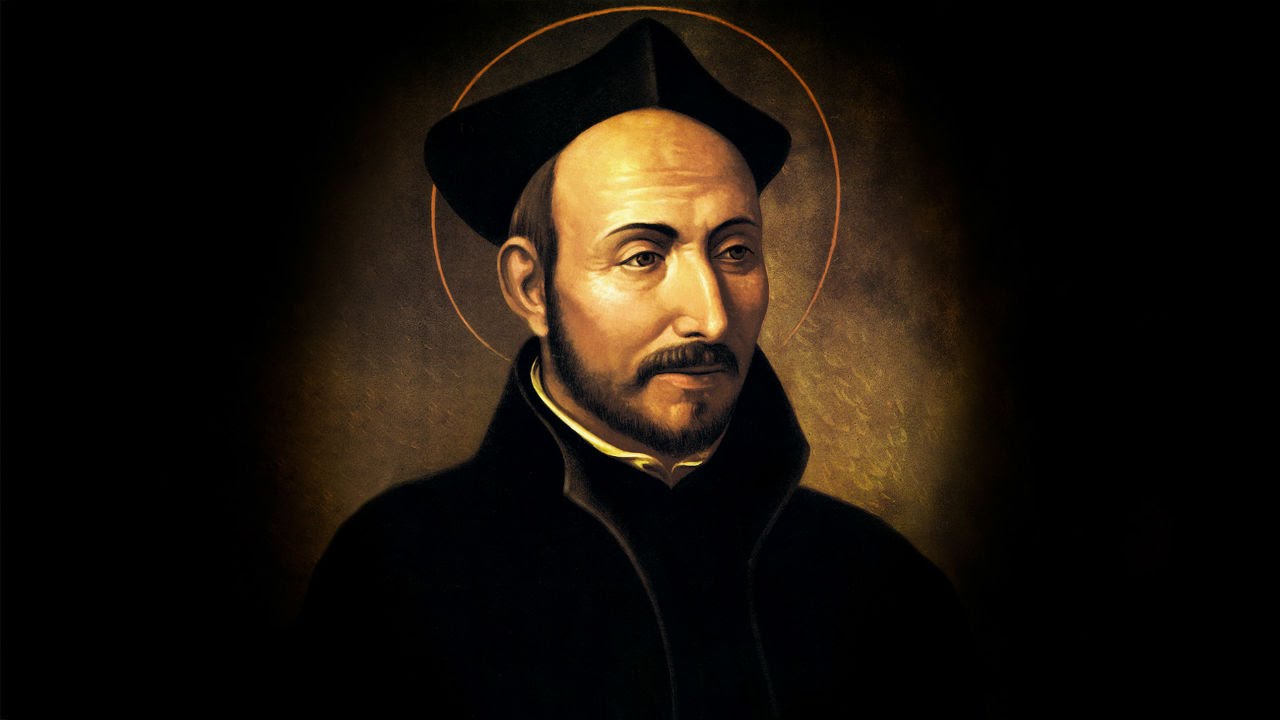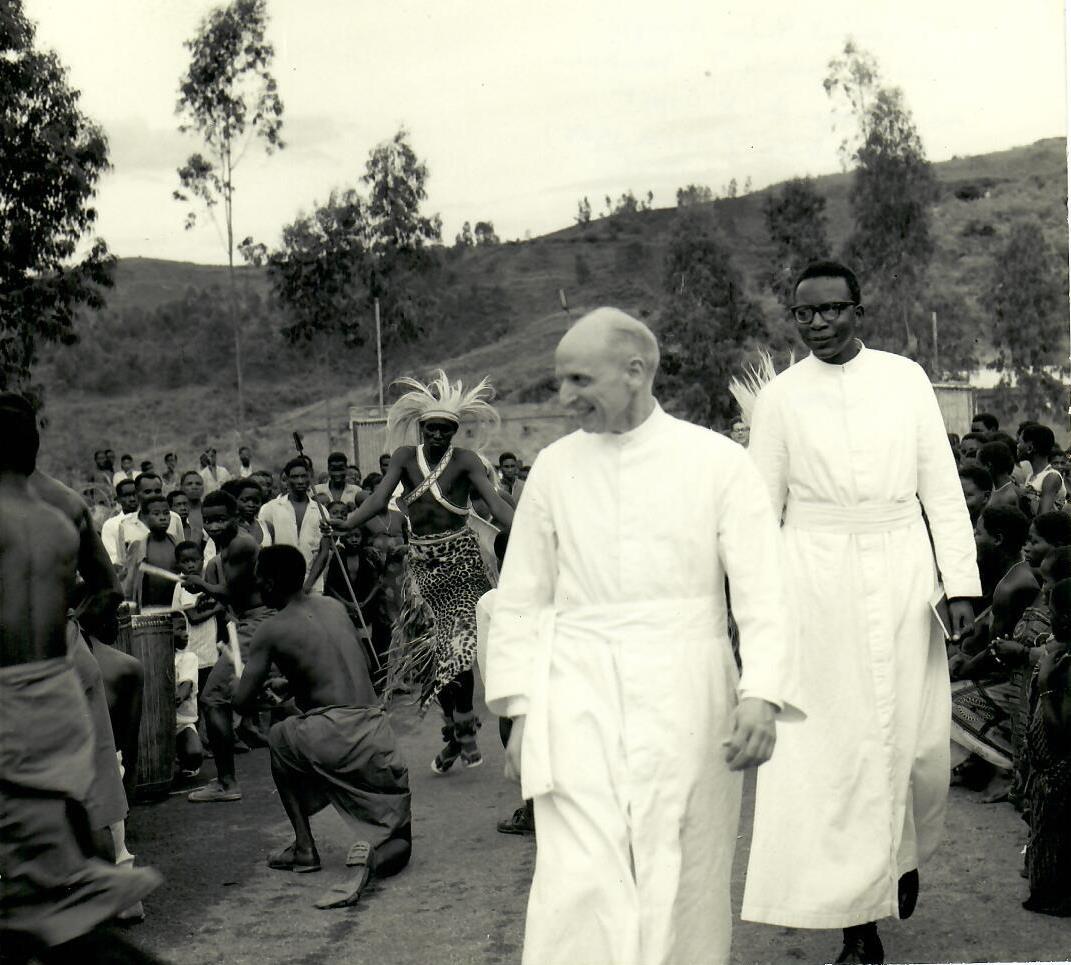The Society of Jesus, whose members are called Jesuits, was officially born on 27th September 1540, when Pope Paul III approved its establishment as a religious order in the Catholic Church. The first Jesuits, of whom there were 10, had met in Paris where they were studying Philosophy and Theology. They formed a group around St. Ignatius of Loyola, a Basque nobleman, whose encounter with God led him to help other souls.
St. Ignatius and his companions had intended to go and evangelise in the Holy Land. But it proved difficult to make the journey owing to wars in Europe. The companions then put themselves at the disposal of the Pope who soon confided in them work in Rome and throughout Europe.

St. Ignatius of Loyola – Founder of the Jesuits
Perhaps the most important mission at the time was the reform of the Catholic Church. The Society of Jesus came into existence at a time when many Catholics in Europe were attracted by the Protestant reformation spearheaded by Martin Luther and John Calvin.
The Jesuits would be instrumental in helping the Catholic Church implement a process of internal conversion. This new religious order played an important role at the Council of Trent (1545-1563) and its members went all over Europe preaching, giving retreats and supporting Christians who were in danger of losing their faith.
In this mission of counter-reformation (that is to say, reformation of the Catholic Church from within), the Jesuits were guided by fidelity to Jesus Christ and fidelity to the Pope. Jesuit spirituality is therefore characterised by closeness to Christ and to the Church, by a constant discernment of Christ’s call and by a responsible and free obedience. In everything he does, the Jesuit seeks the “greater glory of God” (in Latin: Ad Majorem Dei Gloriam). He tries to find God not only in prayer, but in all things. He considers himself a contemplative in action.

Today there are more than 16,000 Jesuit priests, brothers, scholastics (seminarians) and novices all over the world. We continue to hold true to the original intuition of St. Ignatius and his companions by working in a variety of missions: we give retreats and spiritual direction, we run a number of schools and universities.
Many of us work for peace and justice, doing research, advocacy and actively accompanying the very poor, notably refugees with Jesuit Refugee Service. Finally, Jesuits are also engaged in pastoral work in parishes, shrines and chapels.
Mission Statement
The Society of Jesus – Serving the Catholic Church for the greater glory of God. For over 450 years Jesuit priests and brothers have lived an amazing story of serving the Church in new and unexpected ways. We are still men on the move, ready to change place, occupation, method — whatever will advance our mission in the Church. We are expected to do anything or go anywhere to help people experience Jesus Christ in their daily lives.
Today that “we” has expanded to include men and women who share this vision of service to faith and to the justice that faith demands. Together Jesuits and lay partners place ourselves in the presence of the God who created all people and ask ourselves the questions that St. Ignatius suggested to his first companions:
- What have I done for Christ?
- What am I doing for Christ?
- What will I do for Christ?
Ministry’s Frontiers
The followers of St. Ignatius Loyola are also exploring the frontiers of mission and ministry.
“Thus as this world changes, so does the context of our mission; and new frontiers beckon that we must be willing to embrace,” the Jesuits declared at their 2008 General Congregation. This spirit is finding expression, for example, in the recent phenomenon of Jesuit middle schools in hard-pressed urban neighborhoods of the United States. Other examples include interreligious dialogue in countries torn by religious violence, and the struggle for environmental justice.
Core Value / Belief
From the foundation of the order, Jesuits have had a distinctive way of looking at life and the world which has become part of their educational and spiritual apostolates, and inturn shared with hundreds of thousands of women and men shared with hundreds of thousands of women and men. This worldview includes the following characteristics:
- Openness and enthusiasm toward the whole of God’s richly diverse creation and for the human person as its crowning glory;
- Hopefulness and pragmatism in seeking graced solutions to life’s challenges through creative use of all available gifts and resources, tempered by realism and compassion about the reality of human weakness;
- Sustained critical attention to motivations and choices based on the conviction that individuals, through the exercise of their freedom, exert a real influence on their world and one another for good or for evil; and
- Commitment to a life of growing integrity and increasing service to God and others after the Gospel model of Jesus Christ.
Find more about Jesuits worldwide at https://www.jesuits.global
